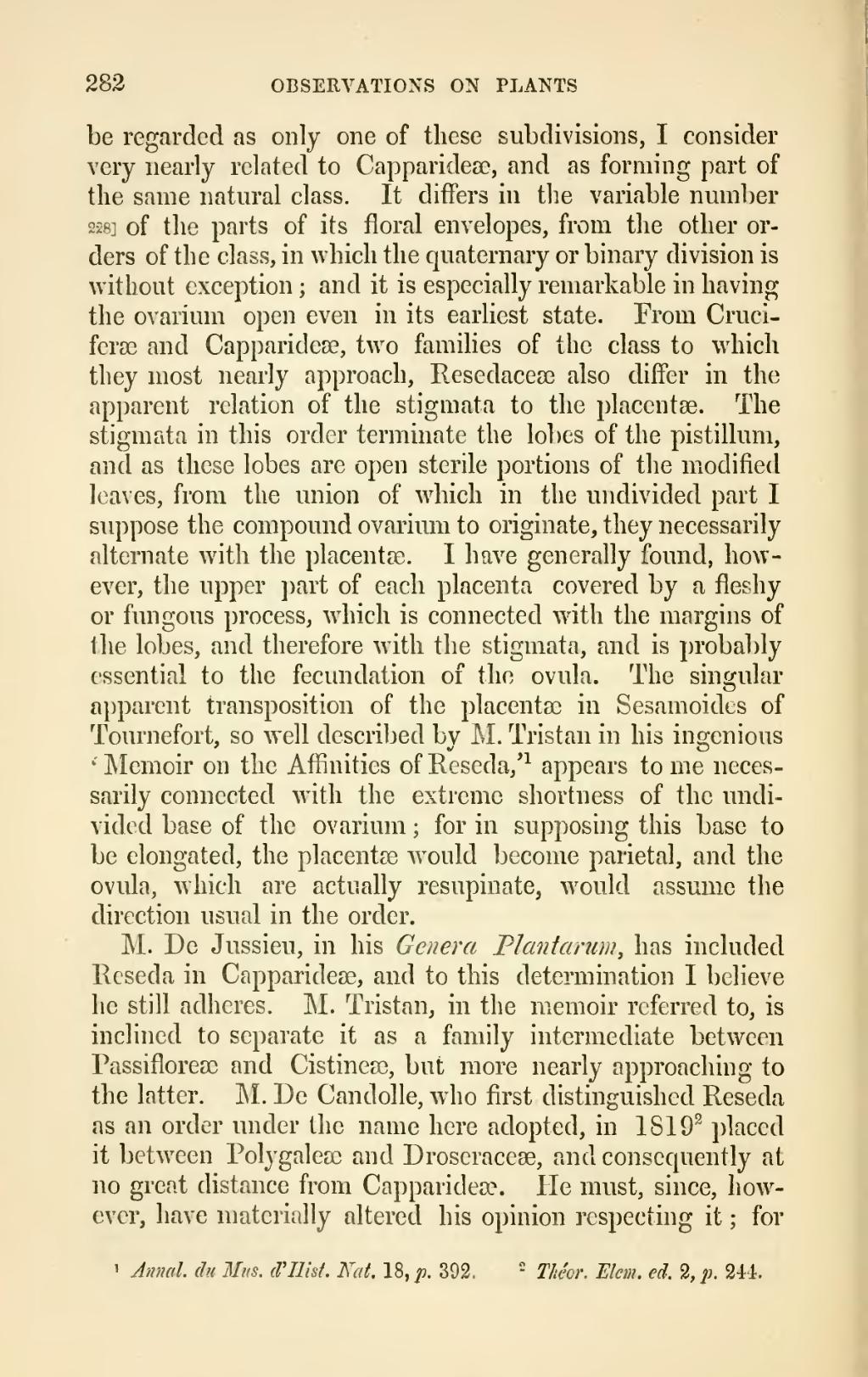be regarded as only one of these subdivisions, I consider very nearly related to Capparideæ, and as forming part of the same natural class. It differs in the variable number of the parts of its floral envelopes, from the other orders of the class, in which the quaternary or binary division is without exception; and it is especially remarkable in having the ovarium open even in its earliest state. From Cruciferæ and Capparideæ, two families of the class to which they most nearly approach, Resedaceæ also differ in the apparent relation of the stigmata to the placentæ. The stigmata in this order terminate the lobes of the pistillum, and as these lobes are open sterile portions of the modified leaves, from the union of which in the undivided part I suppose the compound ovarium to originate, they necessarily alternate with the placentæ. I have generally found, however, the upper part of each placenta covered by a fleshy or fungous process, which is connected with the margins of the lobes, and therefore with the stigmata, and is probably essential to the fecundation of the ovula. The singular apparent transposition of the placent in Sesamoides of Tournefort, so well described by M. Tristan in his ingenious 'Memoir on the Affinities of Reseda,'[1] appears to me necessarily connected with the extreme shortness of the undivided base of the ovarium; for in supposing this base to be elongated, the placentæ would become parietal, and the ovula, which are actually resupinate, would assume the direction usual in the order.
M. De Jussieu, in his Genera Plantarum, has included Reseda in Capparideæ, and to this determination I believe he still adheres. M. Tristan, in the memoir referred to, is inclined to separate it as a family intermediate between Passifloreæ and Cistineæ, but more nearly approaching to the latter. M. De Candolle, who first distinguished Reseda as an order under the name here adopted, in 1819[2] placed it between Polygaleæ and Droseraceæ, and consequently at no great distance from Capparideæ. He must, since, however, have materially altered his opinion respecting it; for
